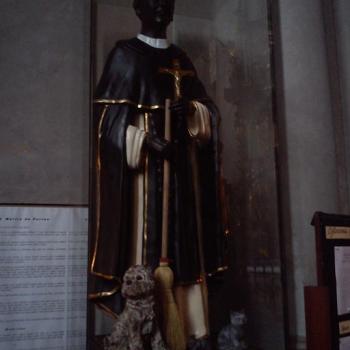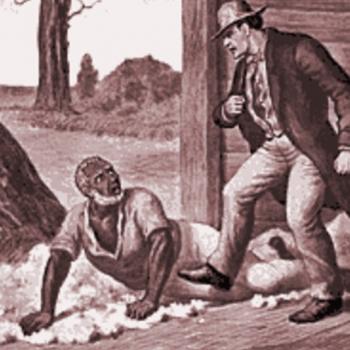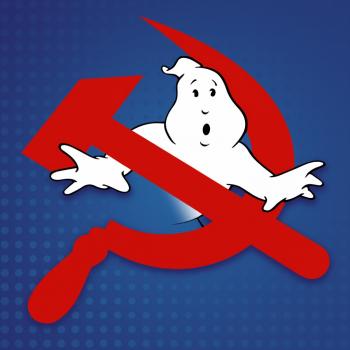[NOTE: The discussion on the previous version of this post went wildly astray, which was mostly my fault. Apologies. I will be very closely monitoring any future comments on this version of the post. Please keep all comments focused on the topic of the post. Comments that, in my judgment, are too far off topic will be deleted without being approved, including discussions about the legal correctness or incorrectness of the verdict, or comments whose purpose is to redefine the discussion away from the topic.]
MUCH HAS BEEN WRITTEN AND SAID about the shooting of 17-year-old Trayvon Martin by George Zimmerman, and about Zimmerman’s subsequent trial and acquittal by a Florida jury.
Of the finer points of law and of the verdict itself, or of the possibility of federal action in the wake of the acquittal, I have no comment. I’m not a lawyer. I’m happy to leave the legal discussion to others.
My reaction was more visceral. I couldn’t bear to watch the repelling media-circus coverage of the trial. The glimpses I got of it confirmed my fears that the coverage was functioning as a proxy for the media’s impoverished cultural and racial “debates” that do not, and have not — and will not — shed much if any light on the actual state of race relations in the United States. To quote Shakespeare, It is a tale told by an idiot, full of sound and fury, signifying nothing.
The more human story, as best I’ve been able to derive it from accounts of the night of February 26, 2012, in Sanford, Florida, contains far more heartbreak and tragedy than can be contained in the narrow confines of legal discourse.
George Zimmerman confronted a young man who had committed no crime, but who seemed suspicious. The confrontation escalated to violence and ultimately to Trayvon Martin’s tragic death.
My own feelings about the situation are informed mostly by having spent the first 14 years of my life in a neighborhood filled with young black men. Trayvon’s face reminds me very much of a friend from the old neighborhood.

I forget what my friend’s father did for a living, but I remember that he was doing well enough that he made an offer to buy a house up in the (white and middle class) El Cerrito hills. Everything was all set to go, but at the last minute several homeowners who lived nearby pooled their resources and bought the house out from under him. It was clear that their reason for doing so had everything to do with the amount of melanin in my friend’s father’s skin. My own father remarked at the time that he had never seen someone so hurt.
I’m able to think back now with an adult’s sense of perspective, and from that perspective I doubt that the people in that neighborhood acted out of anything that could be justly categorized as “hatred.” More likely it was fear, grounded in ignorance, that motivated them.
I use that word, “ignorance,” to mean not that they were people who are typically (and too glibly) dismissed as “rednecks” — no, I mean it in the literal sense that they did not know anything about my friend’s father. They didn’t know him as I remember him: as an active Little League dad, a good mentor for his son, a hard worker and loving husband, and a guy who kept his yard as neat as a pin — in other words, the kind of neighbor most homeowners would be happy to have among them. They had prejudged him — the very definition of prejudice — based only on what he looked like.
I experienced this more directly myself when I and my Richmond friends would go into grocery stores in El Cerrito to blow our allowances on sodas and candy. When I was with my black friends, we were always aware of being watched — more to the point, of being treated as suspects — wherever we went in the store. My friends never talked about it much except in an indirect way, but I saw the resentment, the deep and wounding hurt, that this treatment caused them. I never experienced that kind of treatment when I wandered around those stores by myself.
The essence of what happened the night Trayvon Martin was killed was that George Zimmerman confronted a young man who had every right to be in his neighborhood, and began a confrontation that escalated into something horrific. I believe Zimmerman acted out of the same fearful ignorance that motivated the residents of that long-ago El Cerrito neighborhood, and that the cause of Trayvon’s death was, essentially, that same fearful ignorance.
The way to prevent future occurrences like Trayvon’s death may involve the law in some way, but the heart of the solution must come from banishing fear and ignorance with familiarity and kinship.
George Zimmerman is not a monster; I would bet that if he had met Trayvon previously, he might even have liked him — it’s possible that he may even have seen a little of his own story, of his own self, in the young 17-year-old African American. That he did not is the real tragedy of that terrible night.
“People fail to get along because they fear each other; they fear each other because they don’t know each other; they don’t know each other because they have not communicated with each other.” — Martin Luther King Jr.












